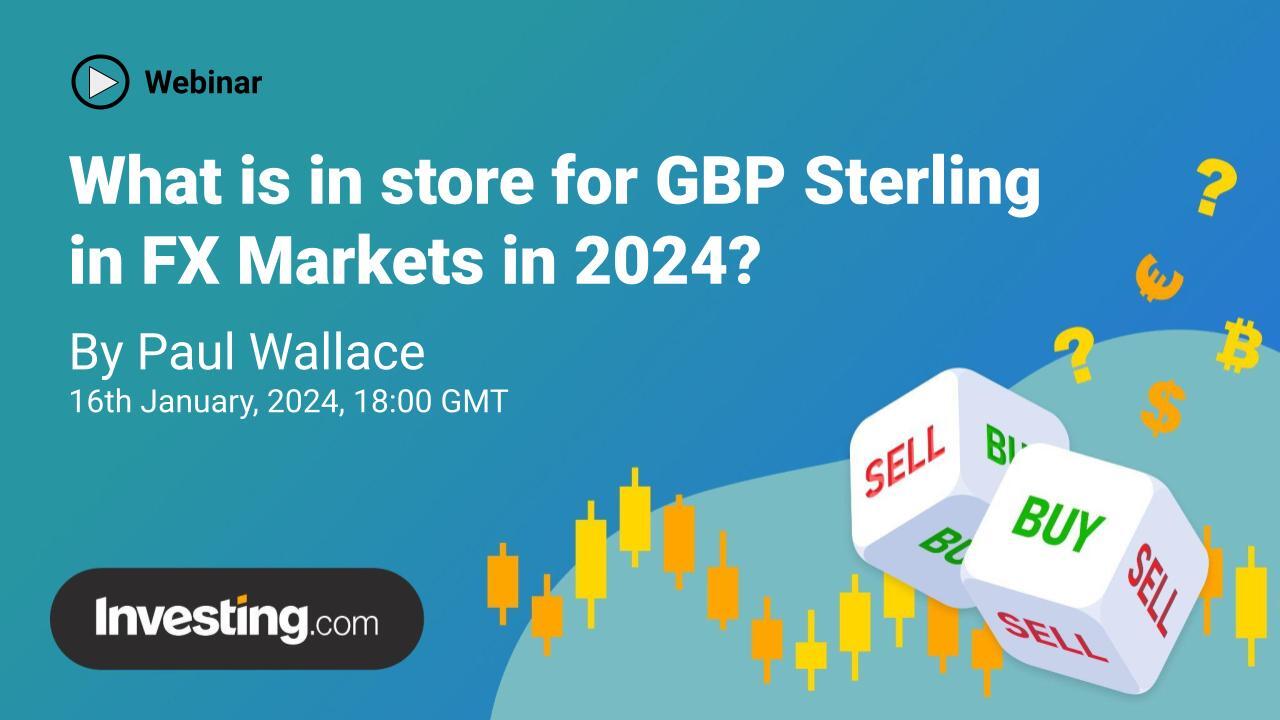Global markets faltered on the first day of trading in the new year, as investors took time for reflection after a breathless end to 2023.
US markets were pegged back by a rise in Treasury yields, suggesting that optimism over several interest rate cuts this year could be somewhat overdone. As such, growth stocks came under pressure, including technology stocks in particular, resulting in a dip of 0.6% for the S&P500 and a fall of 1.6% for the Nasdaq. A broker downgrade also weighed on Apple shares (NASDAQ:AAPL), while some profit taking was evident in the likes of Nvidia and Meta Platforms.
The water was muddied further by a US construction spending report, which showed a lesser than expected rise in November. However, data from the previous month was revised sharply higher, implying underlying strength in a sector which has generally been able to withstand the raft of interest rate rises introduced by the Federal Reserve.
Attention turns today to manufacturing data, as well as the latest Fed minutes from the December meeting. As ever, the minutes will be closely scrutinised for any changes in Fed rhetoric, with particular regard to its current stance on the likelihood of rate cuts. Currently, the consensus is overwhelming that the Fed will keep rates unchanged this month, with the majority expecting the first cut to be announced in March.
The particular weakness in tech stocks spilled over to the Asian markets, although Japan remained closed for a further day’s holiday. Concerns around the health of the manufacturing and property sectors persisted in China, where the perceived lack of stimulus from the authorities has had a debilitating effect both on investor confidence and market performance in the region.
Having finished the first day of trading in negative territory after giving up initial gains, UK markets were light of direction in early trade and hovered around the flatline accordingly. There was muted cause for celebration as the FTSE100 marked its 40th anniversary (see below), with broker downgrades to the likes of Burberry and Rentokil offsetting an upgrade to Glaxo. Small gains for defensive shares reflected the sombre mood, although Tesco (LON:TSCO) and Sainsbury advanced slightly ahead of their Christmas trading updates next week, following a report suggesting that the festive period may have been the busiest since prior to the pandemic.
FTSE100 at 40: fighting fit or feeling friendless?
It is often mentioned that the previous record high of 6930 in 1999 around the time of the dot.com frenzy was only eclipsed last year, when the FTSE100 passed the 8000 barrier for the first time. On the face of it, that is a paltry return in terms of the index number itself.
It is also only part of the story. The index is reshuffled on a quarterly basis, usually resulting in two or three stocks being relegated and replaced by stocks from the FTSE250. As such, the index number in isolation is something of an apples and pears comparison between 1999 and 2023.
Rather more importantly this does not include the power of compounding, or reinvesting dividends. The UK has traditionally been a generous payer of dividends and when these are taken into account, the figures are startling. Since the turn of the century, the “simple” return on the FTSE100 is around 12%. However, with dividends reinvested, the total return leaps to 163%.
The power of compounding is even more compelling over greater periods of time, such as going back to 1984 when the index was launched. £1000 invested would now be worth £7700 on a simple return basis, but over £22500 in total returns. The importance of a longer-term investment time horizon and the benefits of compounding are therefore plain to see.
That being said, there is little doubt that the index is currently out of favour with both institutional and overseas investors, propelled by a negative reaction to Brexit from which the UK overall as investment destination has failed to recover.
In a time of high excitement in high growth stocks, particularly technology shares in the US where the potential for AI has led the so-called “Magnificent Seven” to stellar returns, especially last year, the FTSE100’s lack of obvious exposure to the tech sector has been a hindrance. Investors chasing growth have eschewed the UK’s premier index, since its constituents are seen as being past the growth phase, and while rather more dependable, cash generative and stable, many of its companies are seen as having the potential for little more than pedestrian growth in representing the “old economy”.
This can have its advantages, however. 2022 was a tough year for markets, and the likes of the S&P500 and Nasdaq fell by 19.5% and 33.1% respectively. Given its defensive qualities, however, the FTSE100 eked out a gain of 0.9% for the year, thus outperforming many of its global peers by a considerable margin. By the same token, last year was a rather different time as investors sought growth once more. The S&P500 added 24.2% and the Nasdaq 43.4%, while the FTSE100 managed a gain of just 3.8%.
In terms of valuation, the index is cheap by historic standards to itself, let alone its global peers. Whereas the FTSE100 trades on around 10 times earnings, the world index is valued at around 19 times and the S&P500, for example, at around 21 times.
For many, the index is at something of an inflection point. Undoubtedly cheap, but without the propulsion of technology shares. Well regarded, regulated and respected yet unable to attract new companies which are more highly valued among larger pools of capital elsewhere. Rumours of regulatory reforms to the market which could improve new listing prospects, but as yet without any firm details.
As it currently stands, the index runs the risk of mature companies – admittedly providing stable returns – holding back the index given the lack of true growth potential. The index will look rather different in another 40 years’ time, but in the interim it will need a seismic shift to protect its long-term future.
As the global economy continues to evolve through technology generally, and perhaps AI in particular, as well as the implications for companies which can contribute to combatting climate change, sustainable products and changing consumer trends, the challenges are ones which need to be faced head on. Part of this change is arguably already in train, with an estimated 75% of earnings coming from overseas, thus reflecting and benefiting from global progress.
In terms of the sectors in which the top UK companies actually operate, however, it may be that the very constituents of the premier index may need to alter to reflect a new, dynamic and ever-changing global environment.

